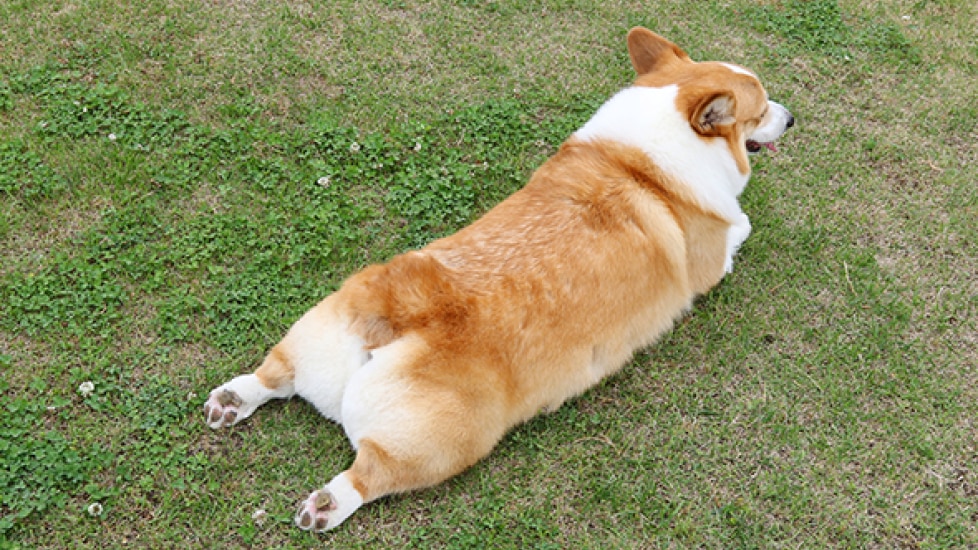Why Your Dog Is Farting and What to Do About It
Reviewed and updated for accuracy on February 4, 2020, by Dr. Katie Grzyb, DVM
Sitting next to a dog that’s farting can be an unpleasant experience. The gaseous odors that emanate from a dog can be surprising and overbearing to the senses.
In most cases, dog gas is harmless. However, excessive gas can be indicative of an underlying health condition that needs to be treated.
Here’s everything you need to know about bad gas in dogs.
What Causes Gas in Dogs?
Excessive gas in dogs can be caused by a variety of reasons. From their diet to health issues, here’s a breakdown of a few of the more common reasons for gas in dogs.
Your Dog’s Diet
What your dog eats can play a huge role in how their digestive tract functions. Here’s a list of the most common dietary culprits of bad gas in dogs:
-
Change in diet
-
Foods that are difficult to digest (soybeans, beans, etc.):
-
High-fat diets
-
Spices
-
High-fiber foods
Of course, bacterial fermentation of nutrients, as in humans, does sometimes result in the noxious gases that escape from time to time.
Swallowed Air
You may be surprised to find that the source of most gas in dogs comes simply from swallowing too much air.
How do dogs swallow too much air, though?
One of the causes is gobbling food, which may have to do with competing with another animal for food and then eating too quickly.
A respiratory disease that causes an increased respiratory rate might be the problem, or feeding shortly after exercise before your dog has had an opportunity to slow their breathing.
Breeds that have short heads—brachycephalic breeds—also tend to swallow a lot of air because of the positioning of their noses.
Serious Gastrointestinal Disease
Disease may also play a part in causing a dog to fart a lot, such as acute and chronic intestinal ailments.
When gastrointestinal disease is the cause, there are usually other symptoms, such as diarrhea and vomiting. Your dog may also suffer from a loss of appetite and weight.
Inflammatory bowel disease is a possibility, as is bacterial overgrowth in the small intestine. Neoplasia, cancer of the bowel, may also be a culprit.
Some other diseases that may cause excessive flatulence are food sensitivities/allergies, parasites, an inflammation of the intestine caused by a virus, or a failure of the pancreas to function normally.
Is It General Gas or Time to Call the Vet?
If your dog has smelly gas and/or belly gurgling several times a week, then it’s time to discuss possible causes with your veterinarian.
You should also seek medical advice from your veterinarian if the gas is accompanied by:
-
Vomiting
-
Diarrhea
-
Weight loss
-
Lethargy
-
Loss of appetite
What to Give Dogs for Gas
Examining your dog’s diet and ruling out actual disease are the first steps in addressing flatulence. There are medications that can help if you feel that the problem is great enough to justify it.
Consult your veterinarian before dispensing any of these gas-relief medications to your dog, as breed, age, and weight need to be considered:
-
Zinc acetate
-
Yucca schidigera
-
Dry activated charcoal
-
Simethicone
-
Veterinary-recommended probiotics
Tips for Preventing Gas in Dogs
A dog that is farting a lot can be unpleasant for everyone. however, Here are a few tips for helping to minimize your dog’s gas.
-
Encourage an active lifestyle.
-
Feed smaller meals more frequently.
-
Feed meals in a quiet, isolated, noncompetitive environment.
-
Make certain your dog’s diet is highly digestible.
-
Changing the source of protein and carbohydrates sometimes helps. You should do this slowly, under the guidance of a veterinarian, as acute diet changes can lead to more of an upset stomach.
Control Your Dog’s Access to Unapproved Food
Finally, be cautious about where your dog has access to food. For example, put secure covers on garbage cans and do not let your dog roam into the neighbors’ yards or into garages where garbage might be stored.
Also, make sure your dog isn’t eating feces, aka coprophagia. For example, dogs will eat items like deer pellets because of their likeness to kibbles.
Featured Image: iStock.com/kukai
Help us make PetMD better
Was this article helpful?
